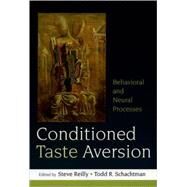- ISBN: 9780195326581 | 019532658X
- Cover: Hardcover
- Copyright: 10/14/2008
Conditioned taste aversion is arguably the most important learning process that humans and animals possess because it prevents the repeated self-administration of toxic food. It has not only profoundly influenced the content and direction of learning theory, but also has important human nutritional and clinical significance. In addition to its direct relevance to food selection, dietary habits, and eating disorders, it is significant for certain clinical populations that develop it as a consequence of their treatment. The study of conditioned taste aversions has invigorated new theory and research on drug conditioning and addictions, as well as on conditioned immunity. There has also been a substantial amount of recent research exploring the neural substrates of conditioned taste aversion--its neuroanatomy, pharmacology, and role in the molecular and cellular basis of plasticity. This book provides a definitive perspective on the current state of research, theory, and clinical applications for conditioned taste aversion effects and methodology. In each chapter, a leading scholar in the field presents a broad range of studies, along with current findings on the topic, highlighting both the major theoretical landmarks and the significant new perspectives. It will be an important resource for both professional and student researchers, who study conditioning, learning, plasticity, eating disorders, and dietary and ingestive behaviors in neuroscience, cognitive neuroscience, cognitive psychology, developmental psychology, clinical psychology, psychopharmacology, and medicine.







